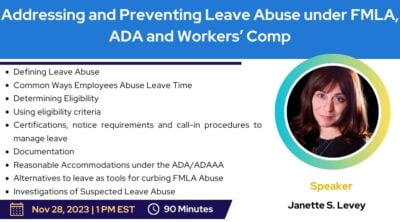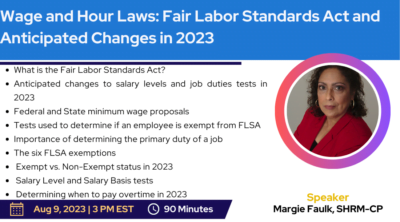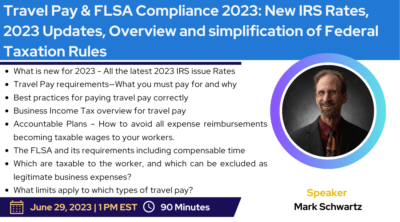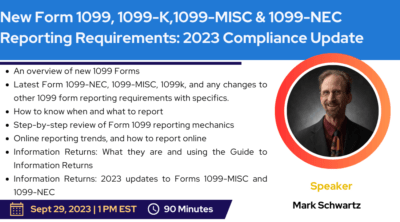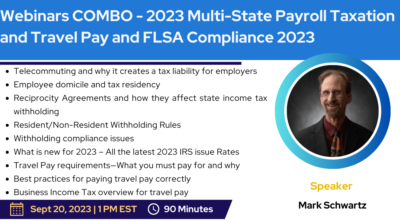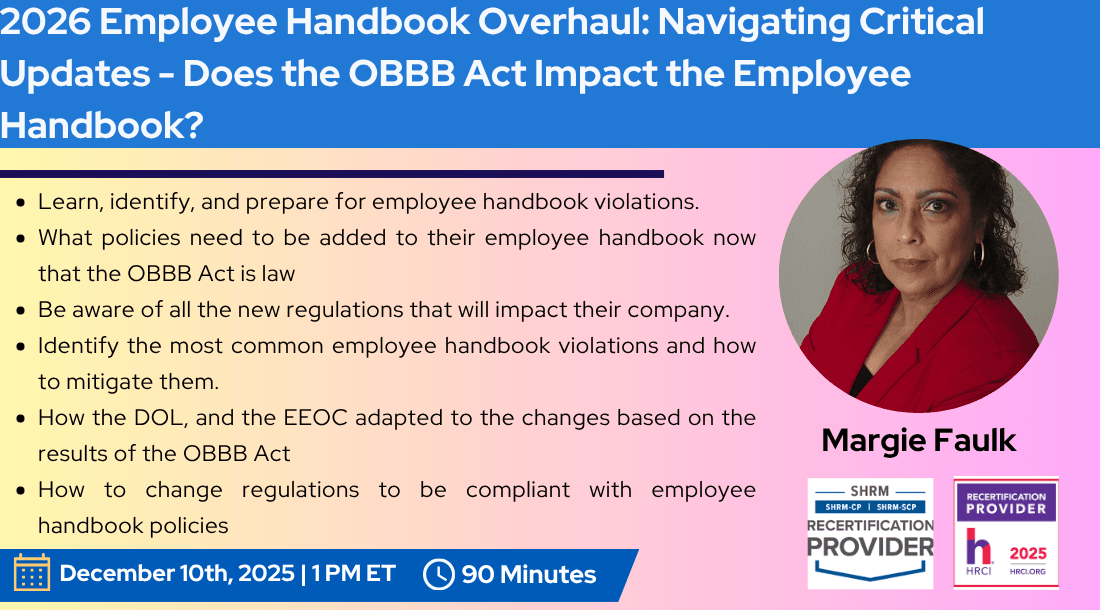Description
HRCI & SHRM Approved Webinar | Credit Hours = 1.5 CEUs
Overview:
If there’s ever a time to rethink your handbook, it’s now. The timeliness has less to do with the 2026 year, the obvious time to roll out a replacement handbook, and more to do with the wave of changes that recently swept the workplace based on the change in administration and their updated policies, including the One Big Beautiful Bill Act.
The OBBB Act, impacts employee benefits &payroll administration. You should update your employee handbook to address the following changes:
- Tip and overtime tax deductions: For tax years 2025 through 2028, the OBBB Act creates new, temporary federal tax deductions for eligible employees.
- Tip deduction
- Overtime deduction
- Employer reporting
Beyond the OBBB Act, you should also consider other updates for 2025:
- Remote and hybrid work policies
- Artificial intelligence (AI) Policy
- Updated paid leave
- Anti-harassment and inclusion
- Employee classification
- Federal, State, and Local regulations
- Regulatory agencies audit focus for 2025 and beyond. For example, Immigration Enforcement requirements.
- Multi-state Regulations impacting which laws supersede federal regulations.
Workers’ new expectations may clash with employers’ old policies. Policies that ban flexibility, certain policies, as per the temporary and permanent changes in the workplace.
What will you learn:
- Learn, identify, and prepare for employee handbook violations.
- What policies need to be added to their employee handbook now that the OBBB Act is law
- Be aware of all the new regulations that will impact their company.
- Identify the most common employee handbook violations and how to mitigate them.
- How the DOL, and the EEOC adapted to the changes based on the results of the OBBB Act
- How to change regulations to be compliant with employee handbook policies
- Which regulatory agency will focus on which regulation and mitigate the risk
- What policies will land them in hot water if they are not compliant.
- What policies are “must-haves” for your employee handbook?
- How AI will impact the workplace and what guardrails need to be in place to avoid discriminatory perceptions
- Social media and the impact of penalties when employees choose to speak negatively about their Employer.
- How your managers/supervisors can be your ambassadors in workplace compliance or your downfall
- How training can be one of your “first line of defense” in litigation.
Why You should Attend:
The OBBB Act is not the only change we will need to adjust to our Employee Handbooks. Federal regulations are not the only changes that are expected. We have learned that State regulations have superseded the Federal regulations because the regulation with the most benefit for the employee supersedes them. Many states have several changes that impact employees in state-specific and multi-state locations. When you add remote workers, there are many changes that have to be in place where compliance is key. Are your employees ready for the 2026 Employee Handbook updates?
Who should Attend:
- All Employers
- Business Owners
- Company Leadership
- Compliance professionals
- Payroll Administrators
- HR Professionals
- Managers/Supervisors
- Small Business Owners

